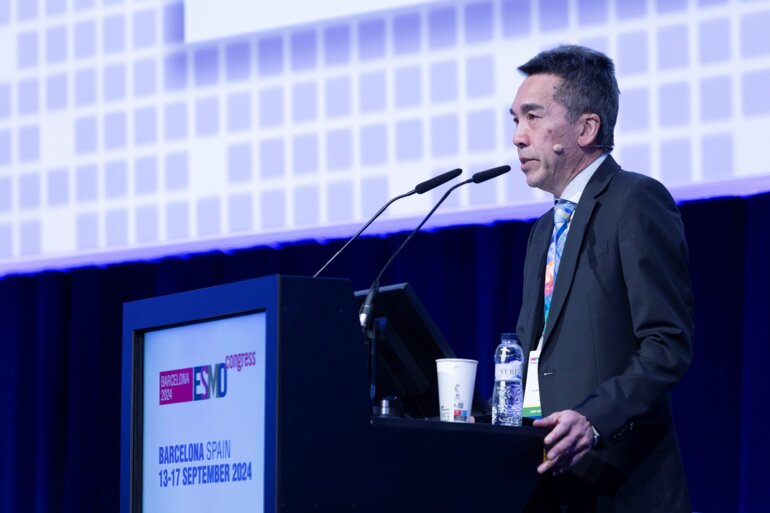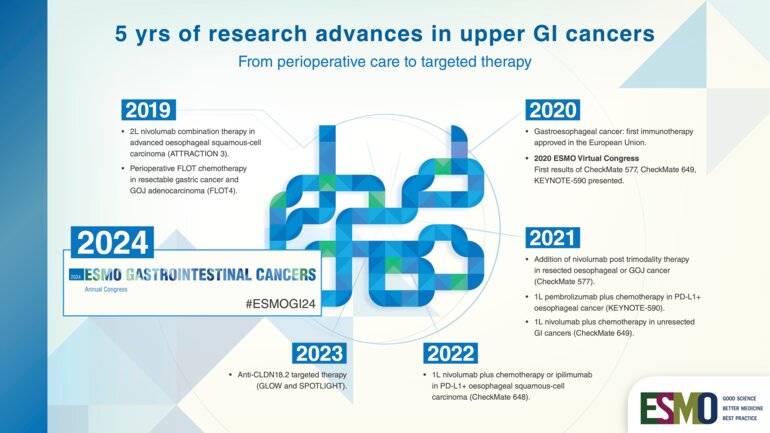
KRAS and TP53 may have a key role in the development of pancreatic cancer
Studies provide new insights into the driver landscape of these gastrointestinal tumours and show improved prediction of patient-specific outcomes.

Studies provide new insights into the driver landscape of these gastrointestinal tumours and show improved prediction of patient-specific outcomes.

Final analysis of the KEYNOTE-811 trial reports positive findings when adding pembrolizumab to trastuzumab and chemotherapy in treatment-naïve patients

Final late-phase trial results show that the addition of pre-operative chemoradiotherapy to peri-operative chemotherapy does not improve long-term outcomes in patients

Benefits reported for the combination of ipilimumab and nivolumab further expand alternative therapeutic options for patients with unresected advanced disease

Novel agents, a rethinking of accepted treatment concepts and new roles for older treatment modalities are now driving liver cancer management

Final results of the KEYNOTE-585 study indicate that the current treatment standard for resectable G/GEJ should remain unchanged

Innovative approaches are investigated to predict cancer development in patients with cirrhosis and detect early recurrence after resection

Research is moving forward to adapt clinical practice to a new wave of early-onset cases of cancer in the digestive tract

Recent results from research have changed the treatment paradigm for some digestive tumours, but further evidence is needed to finetune the neoadjuvant approach

In the last few years, study findings have changed clinical practice and offered new opportunities of care to many patients
This site uses cookies. Some of these cookies are essential, while others help us improve your experience by providing insights into how the site is being used.
For more detailed information on the cookies we use, please check our Privacy Policy.
Necessary cookies enable core functionality. The website cannot function properly without these cookies, and you can only disable them by changing your browser preferences.